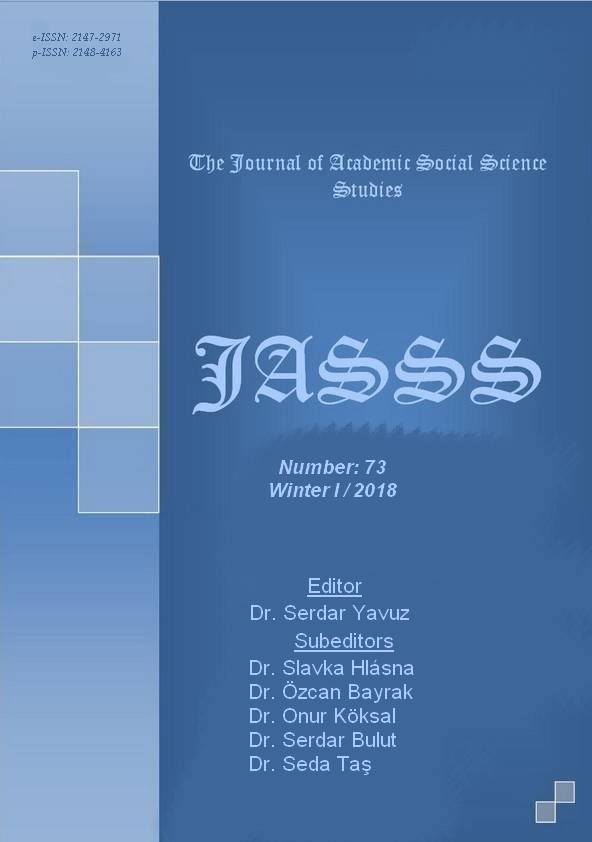Author :
Abstract
Türkiye'de resmi ve özel kuruluşlar tarafından açılan sistemli eğitimin ilk aşaması olan okul öncesi eğitim kurumları eğitim öğretimin ilk kademesinde yer almaktadır. Okul öncesi eğitim kurumlarına devam eden çocukların zengin öğrenme deneyimleri aracılığıyla sağlıklı büyümelerini; motor, sosyal-duygusal, dil ve bilişsel gelişim alanlarında gelişimlerinin en üst düzeye ulaşmasını, öz bakım becerilerini kazanmalarını ve ilkokula hazır bulunmalarını sağlamak amacı ile geliştirilmiştir. Sınıf iç mekânlarının önemli bir bölümü etkinlik köşelerinden oluşturmaktadır. Günümüz uygulamalarında daha çok büyük gurup odaklı olduğu ve bireysel eğitim fırsatlarının ya çok az yada çok eksik olabileceği dikkati çekmektedir. Ancak Montessori eğitim sisteminde yer alan okullar, eğitim sisteminin tüm kademelerinden bağımsız olarak hizmet vermektedirler. Montessori Okulları sadece ilköğretim okuluna değil, hayatın tümüne hazırlar. Çocukların günlük yaşam becerilerinin eğitimiyle çocukların hayatları boyunca kendi ayakları üzerinde durabilmeleri amaçlanır. Maria Montessori' nin geliştirdiği, yöntem çocuğu ruhsal ve fiziksel açıdan olumlu yönde etkileyen; çocuğun duyu, hareket ve dil eğitimine önem veren; sosyal, duygusal, bedensel yönden önemli katkıları ve yararları olan, temeli bireysel eğitime dayanan bir eğitim modelidir. Montessori okulları ayrı, ayrı etkinlik köşeleri bulunmaz, çocukların yetişkinlerden bağımsız hareket edebilecekleri evler olarak düzenlenmiş ve kendi boylarına göre tasarlanmış dolaplardan materyalleri alarak istedikleri yerde materyallerle çalışma yapabilirler. Montessori Metodu’nun amacı kişiliğin geliştirilmesidir. Kişiliğin geliştirilmesi ancak özgürlüğün kazanılmasıyla elde edilebilir. Dolayısıyla Montessori Metodu’nun en önemli amacı, çocuğun özgürleştirilmesidir.
Keywords
Abstract
Opened by public and private organizations and educational institutions in the first stage of pre-school education system in Turkey is located on the first level of education. Children who attend pre-primary education institutions will have healthy growth through rich learning experiences; motor, socio-emotional, language and cognitive development to reach the highest level of development, to acquire self-care skills and to be present in elementary school. A significant part of the classroom interior is made up of the activity corners. It is noteworthy that today's applications are more focused on large groups and that individual training opportunities may be very few or very few. However, schools in the Montessori education system serve independently of all levels of the education system. Montessori Schools are ready not only for elementary school but for the whole of your life. Through the education of children's daily life skills, it is aimed that children can stand on their own feet throughout their lives. The method developed by Maria Montessori, which affects the child positively in terms of mental and physical; giving importance to the child's sense, movement and language education; social, emotional, physical and vital contributions and benefits that are based on the basis of individual education is an educational model. Montessori schools do not have separate, separate activity corners, they can work with materials where they want by taking materials from cabinets arranged as houses which children can move independently from adults and designed according to their own size. The Montessori Method is the development of the intended person. The development of personality can only be achieved through the acquisition of freedom. Therefore, the most important goal of the Montessori Method is the emancipation of the child.





